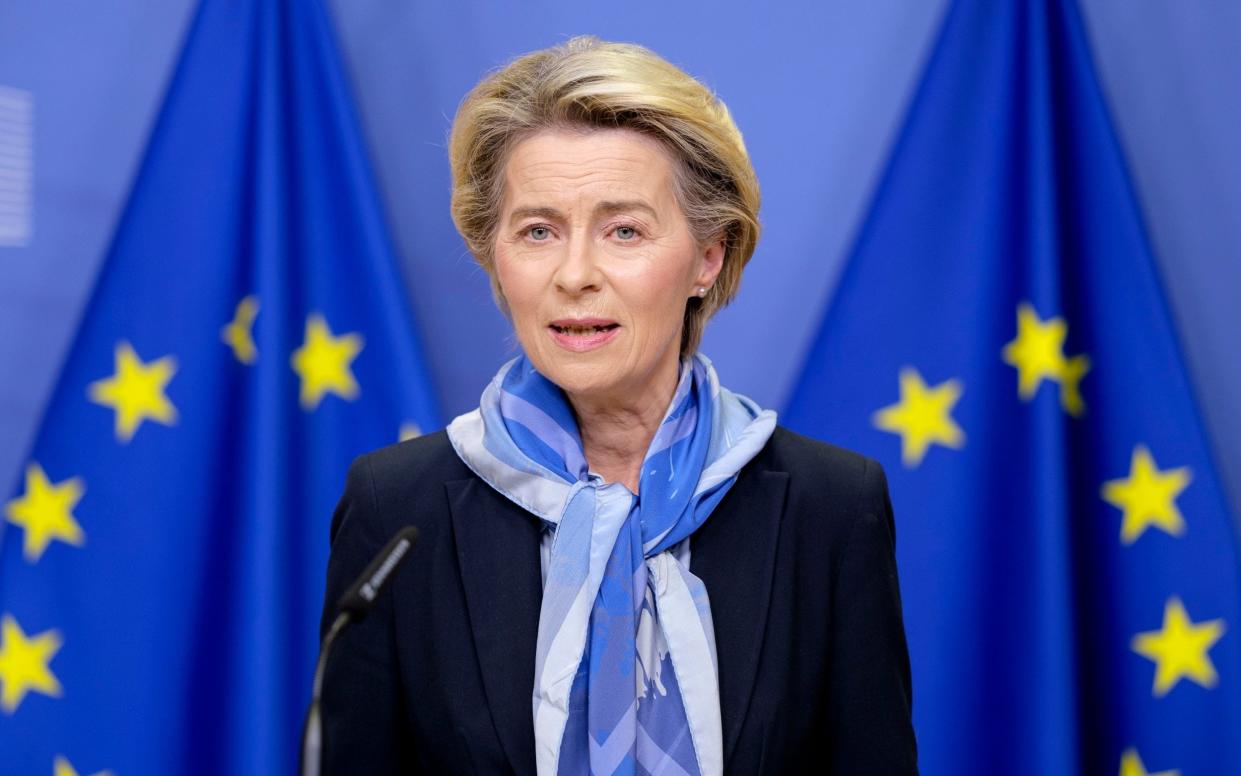The EU could be about to cripple Nato

For decades, the European Union has been grappling with its vision and sense of purpose: is it a trading bloc of likeminded independent states with overlapping interests, or a mission to create an ever-closer union of countries?
This question is often responsible for some of the more tumultuous events that take place in politics; in 2016, the British public sensed that Euro-federalism was dominant in Brussels and chose to leave to safeguard Britain’s sovereignty and prosperity. Last week, European parliamentary elections saw a surge of votes for nationalist parties in a reflection of that same concern.
The next frontier of the EU federalist project is to acquire control over that which makes states sovereign – defence. Debates rage in Brussels over how to achieve this. Will EU Member States place their forces under the control of an EU command? Or can Brussels dictate which defence industries are located where within the EU, thereby making all members dependent on each other and the centre.
Thankfully, the worst excesses of this kind of thinking are challenged by those in Europe who wish to maintain and preserve their national sovereignty. But as a result of compromises in policy, a confused EU “defence union” model risks emerging, real enough to undermine European security but not powerful enough to defend it.
For example, at a time when there is increasing criticism of US protectionism in trade, the EU seeks to create a common defence industry with protectionist elements that could disadvantage key defence allies such as Britain. Contracts awarded by the EU’s defence fund on the basis of “advancing EU strategic autonomy” will hamper Member States’ ability to work with allies in complex coalitions on novel defence projects, as Italy has worked with Britain and Japan in the Global Combat Area Program to develop a sixth-generation stealth fighter.
Britain has left the EU and works on defence and security issues with the bloc in an ad hoc manner, preferring primarily to work through NATO and our key bilateral relationships. This independence has allowed us to consistently move faster and further in arming Ukraine, providing tanks when no one else would, and allowing our allies to strike targets inside Russia while our allies dither and then follow suit.
Given our independence, there will be those here and in Brussels who say that EU defence plans are none of Britain’s business. This could not be more wrong, as the emergence of a European defence union would directly impact on NATO and the security of the continent.
Countries are members of NATO because they are sovereign states with a common interest in the security of the Euro-Atlantic. They are not members because they believe in the European political project.
And therefore, an EU defence project risks undermining our collective security in three ways. The first is money. Too few European NATO members currently make the 2 per cent GDP commitment to their defence budgets, with 80 per cent of NATO defence spending accounted for by the non-EU members of the alliance. Because EU structures do not require members to commit more funds, it is almost inevitable that money will be diverted away from core NATO functions.
The second risk is a duplication of organisation. Brussel’s fixations on process and the political aspects of defence have created a labyrinthine maze of EU defence initiatives, programmes, and acronyms. The creation of EU organisations is redundant when NATO and national systems are already in place.
The third risk is EU political weakness. The UK knows this well, but our American allies should understand that EU defence initiatives will not primarily compliment NATO capabilities but bog them down in infighting and vetoes from a Brussels bureaucracy that would be responsible for sending men and women into combat, but fundamentally be disconnected from any accountability.
A new report by the Legatum Institute traces the EU’s plans for a defence union and outlines the risks they pose to Britain. Concerningly, Labour’s manifesto plans to agree a security pact with the EU risks putting us in a situation where the UK may be required to support the development of EU defence arrangements that it has no control over, and that weaken our collective security.
Attempts to create parallel EU defence structures are misguided and are in danger of becoming an expensive vanity project. The dangers to European security are all too real, and Labour should not risk our collective defence as they try to create a closer relationship with the EU for political purposes.

 Yahoo News
Yahoo News 